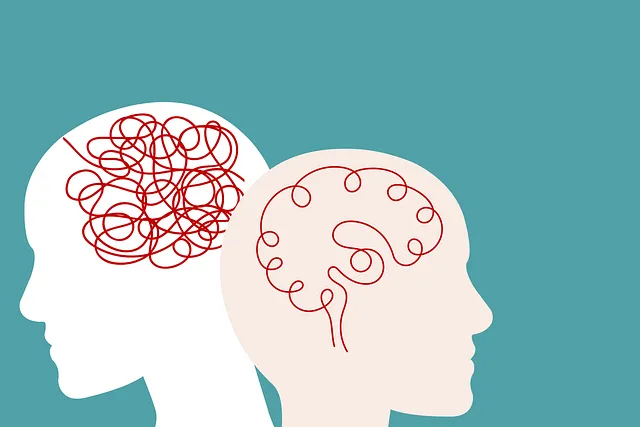Understanding mental illness diagnoses is crucial for effective treatment at Kaiser Permanente's superior mental health facilities. The process begins with recognizing symptoms, followed by comprehensive assessments using DSM-5 criteria. This knowledge reduces stigma and personalizes treatments like psychotherapy, medication, and mindfulness meditation. These facilities stand out for their cultural sensitivity, evidence-based therapies, tailored interventions, stress reduction techniques, and supportive networks. Regular evaluations track progress, enabling precise treatment adjustments. Kaiser Permanente's approach enhances outcomes and quality of life through personalized, comprehensive care in superior mental health facilities.
Mental illness diagnosis and treatment can be complex and overwhelming. This comprehensive guide aims to navigate you through every step, from understanding the diagnosis process to exploring superior treatment options like those offered by Kaiser Permanente’s renowned mental health facilities. We delve into effective treatments, building a supportive network, and measuring success. By the end, you’ll have a clearer path to recovery and wellness.
- Understanding Mental Illness Diagnoses: Deciphering the Process
- The Role of Kaiser Permanente's Mental Health Facilities in Diagnosis and Treatment
- Navigating Treatment Options: Medication, Therapy, and Beyond
- Building a Supportive Network for Recovery and Wellness
- Measuring Success: Tracking Progress and Adjusting Course
Understanding Mental Illness Diagnoses: Deciphering the Process

Understanding mental illness diagnoses is a complex yet crucial process for anyone seeking treatment at a Kaiser Permanente mental health facility. The first step involves recognizing and acknowledging symptoms, which can vary widely from person to person. These might include changes in mood, behavior, thinking patterns, or physical sensations that significantly impact daily functioning. A comprehensive assessment by qualified healthcare professionals, such as those available at Superior Kaiser Permanente facilities, is essential to deciphering these signs. This evaluation typically includes detailed interviews, surveys, and sometimes medical tests to rule out other conditions.
The diagnostic process involves categorizing symptoms into specific mental health disorders based on standardized criteria outlined in the Diagnostic and Statistical Manual of Mental Disorders (DSM-5). This manual provides a structured framework for healthcare providers to make accurate diagnoses. By understanding these categories and criteria, individuals can better navigate their journey towards treatment, armed with knowledge that reduces the often pervasive stigma associated with mental illness. Additionally, this awareness paves the way for designing personalized treatment plans, which may include psychotherapy, medication, or even mindfulness meditation practices, as part of comprehensive mental health education programs.
The Role of Kaiser Permanente's Mental Health Facilities in Diagnosis and Treatment

Kaiser Permanente’s mental health facilities play a pivotal role in providing comprehensive diagnosis and treatment services for a wide range of mental health conditions. These facilities are renowned for their superior care, offering a multifaceted approach to patient well-being. With a team of specialized professionals, including psychiatrists, psychologists, and social workers, they ensure that each individual receives personalized attention tailored to their unique needs.
The integration of Cultural Sensitivity in Mental Healthcare Practice is a cornerstone of these facilities’ philosophy. Recognizing the importance of cultural background in shaping mental health experiences, Kaiser Permanente adapts its services to respect diverse beliefs and practices. Additionally, Social Skills Training and Mindfulness Meditation are offered as evidence-based therapeutic interventions, empowering patients with valuable tools for managing their mental health effectively.
Navigating Treatment Options: Medication, Therapy, and Beyond

Navigating treatment options can be a daunting task for anyone facing a mental health challenge. At Kaiser Permanente mental health facilities, superior care is provided through a comprehensive approach that often includes medication management, evidence-based therapies, and innovative treatments tailored to individual needs. Our experts work closely with patients to understand their unique circumstances, preferences, and cultural backgrounds, ensuring personalized support.
Beyond traditional methods, we explore alternative strategies such as stress reduction techniques, coping skills development, and holistic practices. This multifaceted approach acknowledges that mental health is deeply intertwined with physical well-being, social connections, and personal resilience. By addressing these various aspects, our superior facilities empower individuals to lead fulfilling lives and overcome their mental health challenges effectively.
Building a Supportive Network for Recovery and Wellness

Building a supportive network is an integral part of the journey towards recovery and long-term wellness for individuals navigating mental illness. At Kaiser Permanente mental health facilities, we understand that having a strong support system can significantly impact a patient’s overall well-being. This network extends beyond family and friends to include peers with shared experiences, support groups, and professional caregivers.
Our superior approach integrates Cultural Sensitivity in Mental Healthcare Practice, ensuring tailored care that respects diverse backgrounds and promotes positive thinking. By fostering an environment where individuals feel understood and accepted, we encourage open communication and the adoption of Emotional Well-being Promotion Techniques. These techniques aim to enhance coping mechanisms, resilience, and self-care practices, ultimately empowering individuals to take control of their mental health journey.
Measuring Success: Tracking Progress and Adjusting Course

Measuring success is a vital aspect of navigating mental health treatment, ensuring individuals receive the best possible care. At Kaiser Permanente mental health facilities, tracking progress involves comprehensive evaluations every few months to assess changes in symptoms, functionality, and overall well-being. This data allows for precise adjustments to treatment plans, whether it’s refining medication regimens, updating psychotherapy techniques, or incorporating new activities focused on self-care and skill-building, such as conflict resolution techniques or mental health education programs designed to enhance coping strategies.
Regular progress checks enable healthcare providers to collaborate closely with patients, tailoring interventions to meet their evolving needs. Incorporating self-awareness exercises can empower individuals to actively participate in this process, providing valuable insights into what works best for them. By fostering open communication and continuous evaluation, mental health facilities like Kaiser Permanente ensure that each patient’s journey is personalized and effective, ultimately leading to improved outcomes and a higher quality of life.
Navigating mental illness diagnosis and treatment can be daunting, but with the right support, it is possible to achieve recovery and wellness. Kaiser Permanente’s superior mental health facilities play a crucial role in providing comprehensive care, offering expert insights into understanding diagnoses and tailoring effective treatment plans. By combining medication, therapy, and building supportive networks, individuals can embark on a path of healing. Measuring success involves tracking progress and making adjustments as needed, ensuring a personalized journey towards a healthier mind. With access to exceptional resources like Kaiser Permanente’s services, folks can revolutionize their mental health care experience.






